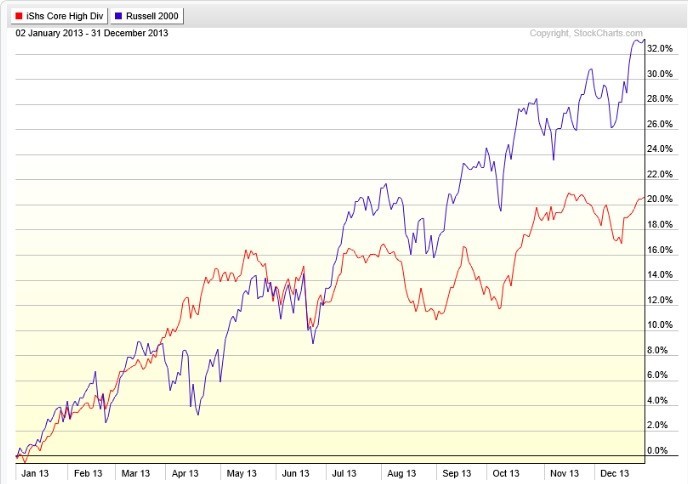In 2015 smallcap stocks will easily outperform the market
Post on: 7 Июнь, 2015 No Comment

Over time, small-cap stocks will beat other sectors, such as the FTSE 100
One of the great things about small-cap stocks is that they outperform the rest of the market.
At least that’s what we’re told. But 2014, while not a dire year, wasn’t exactly the best for small caps either.
Of course, we should all be wary when someone claims to have discovered a system that beats the market. After all, if it worked, everyone would follow it! And that would drive up prices and end up removing the opportunity.
Yet there are some investment styles that do genuinely seem to work over time.
That’s the key point to remember: returns in any given year might fluctuate, but over the long term, small caps have performed really strongly.
Even for an old hand like me it’s helpful to be reminded of the evidence for this from time to time.
That’s why I popped along to an excellent seminar hosted by stockbrokers Numis the other day.
Don’t worry about a single bad year
In a very interesting day, the highlight was Professor Elroy Dimson and Professor Paul Marsh’s annual presentation of the Numis Smaller Companies Index (NSCI).
The NSCI looks at the bottom 10% of the stock market by value, which means the biggest stock in the sample is worth £1.2bn, and is more of a mid-cap share.
Dimson and Marsh are both London Business School professors and hugely experienced market researchers whose work lies behind the creation of the FTSE100 index.
Each year, these two academics provide an update on small-cap returns, along with a lot of related research and insights. For a former fund manager who has spent much of his life looking at indices, returns and investment themes, I found it a fascinating analysis.
As I mentioned earlier, last year was all much of a muchness. Mid-cap shares did best, beating their smaller and larger peers.
The NSCI returned 0.8%, which was a bit behind the FTSE All Share Index at 1.2%. The FTSE100 actually did a shade worse than small caps with a 0.7% return.
The numbers are so close for 2014 that we shouldn’t get too hung up on them. Especially since it’s just a single year.
It’s when we look at the data from the start of the records kept by Dimson and Marsh that we get a really interesting perspective.
FREE PENNY SHARES INVESTMENT EMAIL
Penny Sleuth is our FREE twice-weekly penny share investment email . Top penny share expert David Thornton will help you master the world of small-cap investment.
Each and every week he will pass on his simple, plain talking insights and expertise that really could change your fortunes.
To sign up for FREE, just enter your details below.
Small caps give you a lot more bang for your buck
Pretend it’s 1955 and you have £100.
If you’d invested in the FTSE All Share Index, you’d have turned that £100 into £82,100 over the past 60 years. Which is pretty handsome.
But that same £100 invested in the NSCI would have become £494,600!
However that’s still nothing compared to the Numis 1000. This index follows the bottom 2% of the market by value. The largest company here is worth just under £500m and the index has over 500 stocks. Our £100 invested back in 1955 would now be worth a staggering £1,116,100.
The extra returns that small-cap stocks have provided over the All Share translate into a massive amount over the long run. As Einstein observed, compound interest is the eighth wonder of the world, and we really get to see what it can do when we look at several decades of returns.
There is no ‘funny business’ going on to produce these eye-popping numbers either. These are broad indices, and returns aren’t down to a few spectacular winners. Those really were the sort of rewards available to small-cap investors over the last 60 years.
But not every year was a winner.
Small cap outperformance will continue – but expect more volatility
Out of the past 60 years of small cap outperformance, the first 30 generated the strongest returns.
After Dimson and Marsh spotted these excess returns in the mid-1980s and launched their index, we had ten years of bad underperformance. Remember what I said about what happens when everyone discovers a system for beating the market!
Thankfully, the last 15 years have seen a return to form. Small caps have generated a sustained outperformance, though not quite as large as that earlier period.
The professors conclude that these premium returns from small-cap stocks are likely to persist which I’m pleased to hear. But they do hedge their view a little by saying the scale of outperformance won’t be as great as in the past and that we will see more variation. All of which seems reasonable.
We can learn a lot from the professors’ work, so I’m going to share some of it with you over the next few Penny Sleuths .
Next time I’ll look at why small caps might have performed so well, and see what prospects look like for the next few years.
This article is taken from our FREE penny share investment email Penny Sleuth.
Penny Sleuth is our FREE twice-weekly penny share investment email. Top penny share expert David Thornton will help you master the world of small cap investment. Each and every week he will pass on his simple, plain-talking insights and expertise that really could change your fortunes. Please enter a valid email address
To sign up enter your email address.














